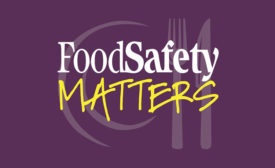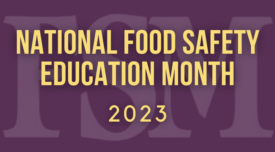Training
The issuance of FDA guidance documents and feedback from FSPCA stakeholders prompted FSPCA to update and issue a new version of its training curriculum
Read More
Risk Culture: How Reducing Complexity Improves the Safety of Consumers, Team Members, and the Company
The way a company approaches its assessment and management of risks has a direct impact on its success
August 7, 2023
The Place of the Food Safety Team Within the Corporate Structure
What type of reporting structure provides the best opportunity for success of the food safety team?
August 7, 2023
Never miss the latest news and trends driving the food safety industry
eNewsletter | Website | eMagazine
JOIN TODAY!Copyright ©2025. All Rights Reserved BNP Media.
Design, CMS, Hosting & Web Development :: ePublishing









.jpg?height=168&t=1691503719&width=275)


